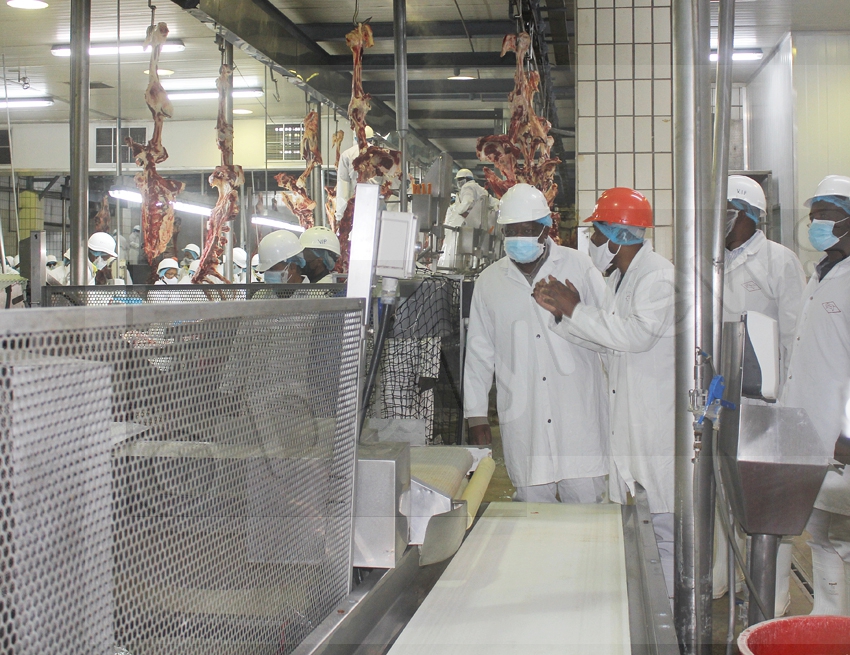Legislators debate indigenous knowledge bill
11 Aug 2022
Members of Parliament on Wednesday debated the Access and Benefit-Sharing of Biological Diversity Bill 2022, which intends to promote fair and equitable sharing of benefits emanating from usage of genetic resources and indigenous knowledge through the establishment of structures governing access and benefit-sharing.
Tabled by Minister of Environment and Tourism, Ms Philda Kereng, the bill read “an act to give effect in Botswana to the Convention on Biological Diversity and the Nagoya Protocol on Access to Genetic Resources and the fair and equitable sharing of benefits arising from their utilisation to the Convention on Biological Diversity; to provide for the establishment of administrative structures and processes for access to biological or genetic resources and associated traditional knowledge; to regulate access to biological or genetic resources and associated knowledge; to protect the right of local communities over biological or genetic resources and associated traditional knowledge; to provide for a fair and equitable sharing of benefits accrued from the utilisation of biological or genetic resources and associated traditional knowledge and to provide for related matters.”
Presenting the bill for second reading, Ms Kereng said Botswana was rich with genetic resources and indigenous knowledge, which needed to be properly utilised to benefit local communities while at the same time contributing towards the economy of the country.
She further said the country needed a legal instrument aimed at conservation of such resources.
“Global studies on access and benefit-sharing concluded that developing countries such as Botswana need to put in place administrative and legislative measures to safeguard their genetic resources,” she said.
She noted that the absence of such instruments created exploitative loopholes for foreign companies who benefited from revenues generated from genetic resources in the process disadvantaging local communities.
She noted that the benefit of Botswana’s indigenous resources such as Sengaparile, Kgengwe and Hoodia had been lost to external businesses.
Once enacted, the law would provide for safeguarding of such genetic resources and promote conservation through incentives, she said.
“This will thereby enhance the nation’s capacity to effectively and sustainably manage these natural resources for the benefit of the nation,” she said.
Ms Kereng said the eight-part bill provided for, among others, the rights over genetic resources and associated traditional knowledge and the protection of local communities’ intellectual property right. She also said the proposed bill provided for research and development, monitoring and tracking of access to the resources and knowledge as well as appointment and powers of investigating officers and penalties for contravention of the act.
Selebi-Phikwe East MP, Mr Kgoberego Nkawana supported the bill, saying it was commendable that the bill promoted conservation as a sustainable utilisation of resources. He said through the provisions, local communities would benefit from indigenous resources.
He underscored the need to protect traditional knowledge to avoid exploitation by external commercial interests.
He also said protection of such natural resources should entail protecting the environment in which they existed to ensure sustainability.
He said licencing for use of natural resources should also be reviewed to optimally benefit Batswana in different capacities.
Additionally, Mr Nkawana said with the new instrument, government should guard against corruption.
“We should play our part as a country and use these resources cautiously and profitably to avoid extinction,” he said.
Mmathethe/Molapowabojang MP, Dr Edwin Dikoloti also supported the bill. He said it would enhance food and nutrition security in the country.
He also said there was need to decolonise indigenous vegetables and fruits such as Moretologa, Mothwane and Thepe, which were abundant in his constituency. He said it would contribute towards fighting non-communicable diseases which were on the rise.
Furthermore, he said as a country which promoted and aspired to be a knowledge-based economy, Botswana needed to protect indigenous knowledge to benefit its people.
“We know there are traditional ways, even in the health sector, which are more beneficial and less expensive as compared to others,” he noted.
Lerala/Maunatlala MP, Mr Setlhabelo Modukanele said it was important to link natural resources beneficiation with local economic empowerment.
He said traditional knowledge such as Botswana’s kgotla system was used by other nations due to lack of protection.
“The bill should be our starting point to ensure that such indigenous knowledge benefit us and is also protected from being used freely by others,” he said.
Also supporting the bill, MP for Mahalapye West, Mr David Tshere said genetically-modifying indigenous foods would enhance food security.
“The provisions of this instrument would also assist in producing good quality foods which are competitive in the international market,” he said.
However, Mr Tshere said Botswana should also prioritise tree planting by using indigenous plants to prevent soil erosion and desertification. ENDs
Source : BOPA
Author : BOPA
Location : Kehumile Moekejo
Event : Winter Parliament 2022
Date : 11 Aug 2022



